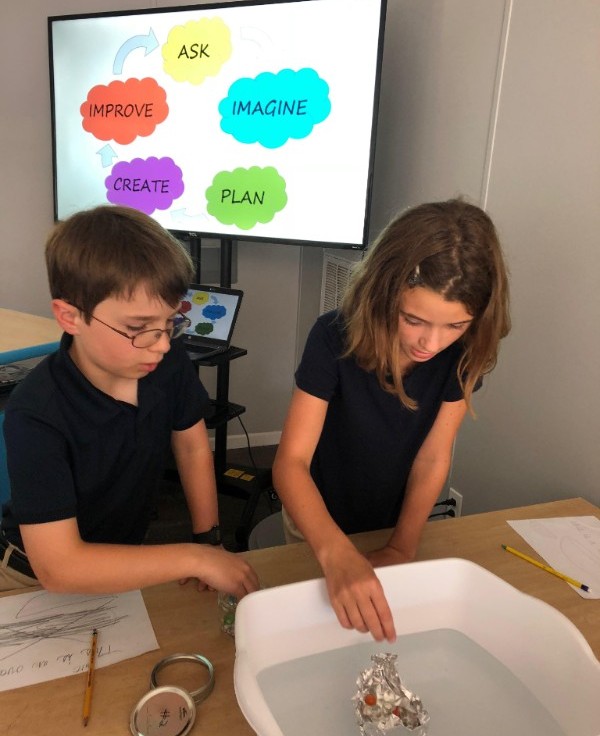Live What You Learn: Angie’s Guiding Principles
 Over the summer, as part of our commitment to expand STEM programs and experiential learning opportunities, we constructed a STEM lab and hired Angie Pleasant to serve as STEM coordinator. In this role, Angie works to integrate STEM programming and experiential learning throughout our curriculum. Here, Angie shares three guiding principles behind her passion for experiential learning, STEM programming, and the motto, “Live what you learn”.
Over the summer, as part of our commitment to expand STEM programs and experiential learning opportunities, we constructed a STEM lab and hired Angie Pleasant to serve as STEM coordinator. In this role, Angie works to integrate STEM programming and experiential learning throughout our curriculum. Here, Angie shares three guiding principles behind her passion for experiential learning, STEM programming, and the motto, “Live what you learn”.
Much of the framework for these principles grew out my last 13 years here at MGCS and under the influence of the wonderful administrators, fellow teachers, and families that have poured into my life. I’m so humbled and honored to be able to work with so many amazing people under one organization. From my experiences and continued education, these guiding principles have shaped the way I see students and learning.
All students can learn.
They do not all learn the same way, so I must get to know them and how they learn in order to teach them. Students require experiences to build a context for learning. Experiences such as pulling dragonfly nymphs out of the creek to better understand how they go through a metamorphosis or observing clouds long enough to make the connection between cloud types and the weather they bring provide context and reinforce classroom concepts.
Learning must be meaningful.
Learning is about more than memorizing facts and passing tests. It should connect to the real world in a real way so that students can make a difference in the sphere of influence they have been given. Learning should empower kids to make positive choices. Providing them with meaningful experiences to build that context is vital. One way we apply this principle is through our water quality studies in upper school science. As part of this unit, we take students to the headwaters and locks and dams of the Cape Fear River so that they can see first-hand where their water comes from, how it is managed, and how our actions help or hinder the quality of water found at the mouth of the river.
Learning is collaborative and holistic.
God designed our world to function in the context of relationship. We can’t breathe without the connection of the sun, photosynthesis, and plants. Nothing operates in isolation. Students demonstrate this principle as they learn. They want to talk, share, as well as seek connection and approval. Thriving classrooms include time to work together, integrate subject matter, celebrate successes, and offer support.
The MGCS STEM program seeks to integrate these principles into our curriculum school-wide as students explore the disciplines of Science, Technology, Math and Engineering. The STEM lab and outdoor environments offer spaces dedicated for inquiry, investigation, and problem solving while also encouraging stewardship and the opportunity to see the beauty of God’s creation at both the macro and micro level.
For more information on this exciting new addition to our academic life, contact Angie Pleasant.
To learn more about Myrtle Grove Christian School near Wilmington’s Monkey Junction area, please schedule a campus tour.
